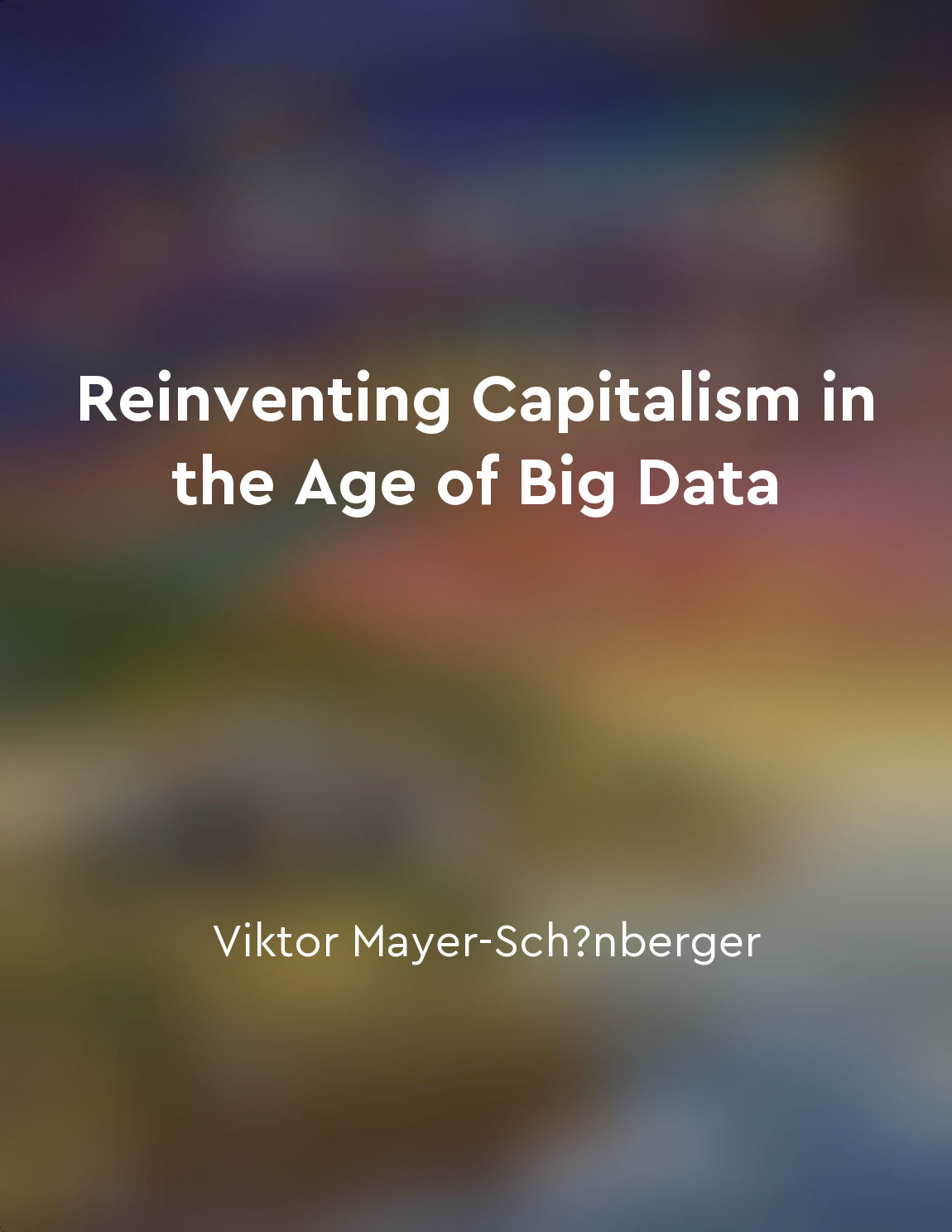The role of government in data regulation is debated from "summary" of Reinventing Capitalism in the Age of Big Data by Viktor Mayer-Schönberger,Thomas Ramge
The ongoing discussion surrounding government involvement in regulating data is a point of contention among various stakeholders. On one side of the argument, some believe that governments should take a hands-off approach and allow the market to self-regulate. This perspective argues that excessive government intervention could stifle innovation and economic growth in the data-driven economy. Proponents of this viewpoint often advocate for a light-touch regulatory framework that prioritizes industry self-regulation and voluntary compliance. Conversely, others argue that government intervention is necessary to address the potential negative externalities associated with data use. This camp believes that without clear rules and oversight, companies may engage in unethical or harmful practices that could compromise individual privacy and societal well-being. Advocates for stronger government regulation often call for the implementation of robust data protection laws, enforcement mechanisms, and oversight bodies to ensure accountability and transparency in the data ecosystem. The debate over the role of government in data regulation is further complicated by the global nature of data flows and the interconnectedness of digital markets. In an increasingly interconnected world, national regulatory efforts may struggle to keep pace with the rapid evolution of technology and data-driven business models. This raises questions about the effectiveness of national regulations in addressing transnational data issues and the need for greater international cooperation and harmonization in data governance.- The debate surrounding the role of government in data regulation reflects broader tensions between the desire for innovation and economic growth on one hand, and the need for protection and accountability on the other. Finding the right balance between these competing interests is crucial to shaping a data-driven future that maximizes the benefits of big data while mitigating its potential risks and harms. As the debate continues to evolve, it remains imperative for policymakers, industry stakeholders, and civil society to engage in constructive dialogue and collaboration to develop effective and sustainable approaches to data regulation.
Similar Posts
We need to push for change
The current state of surveillance is unacceptable. The notion that intelligence agencies can snoop on our personal communicatio...
The system is broken
When we say "the system is broken," what we really mean is that the current state of affairs is not working as it should. The s...
Open access benefits society
Open access to knowledge is essential for the progress and well-being of society. When information is freely available to all, ...

The balance between data use and privacy must be carefully managed
In our digital society, data has become a valuable resource that fuels innovation and economic growth. Companies and government...

The public should have a say in AI development
When we talk about the future of AI, it's not just about what the technology can do, but also about how it will impact our live...

